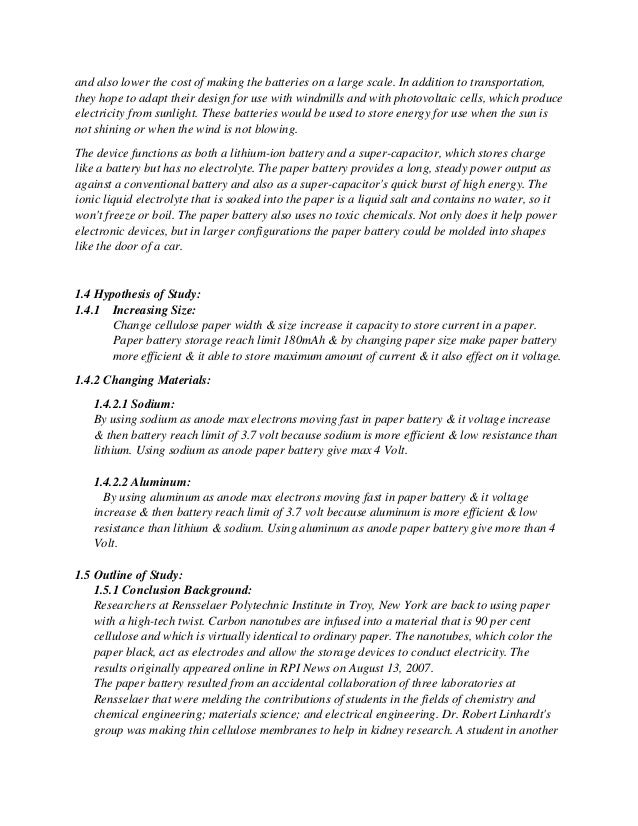
Apr 14, · The thermal management system is essential for the safe and long-term operation of the power battery. The temperature difference between the individual cells exceeds the acceleration of the battery performance, which leads to battery out of use and affects the performance of the vehicle. Compared with the low heat transfer coefficient of the Author: Xingmang Zheng, Gangfeng Tan, Meng Sun, Fangyu Zhou, ZhiQiang Liu This paper proposes an algorithm for sizing the hybrid energy storage system of an urban electrical bus regarding battery thermal behavior. The aim of this study is to get the supercapacitors optimal contribution part in the hybrid energy storage system to keep the battery temperature within its allowable limit At present there are a few research papers tackling the mechanical vibration of battery balancing performance The results of this study demonstrate that battery balancing performance over time should be assessed using a variety of temperature and vibration frequencies. This research paper engages the reader to understand due to the increasing use of LiFePo4 Author: Manish Gaikwad, Reginald Rodrigues
Battery Research Papers - blogger.com
Volume 8 Issue 6 June eISSN: Published Paper ID: JETIR Registration ID: Impact Factor Calculation click here. Volume 8 Issue 10 October Call for Paper Cilck Here For More Info. Share us. Journal of Emerging Technologies and Innovative Research An International Scholarly Open Access Journal, Peer-reviewed, Refereed Journal Impact factor 7.
UGC Approved Journal no ISSN: ESTD Year : Call for Paper Volume 8 Issue 10 October Contact Us Click Here. Published in: Volume 8 Issue 6 June eISSN: UGC and ISSN battery research papers 7. Unique Identifier Published Paper ID: JETIR Registration ID: Page Number dd Post-Publication Downlaod eCertificate, Confirmation Letter editor board member JETIR front page Journal Back Page UGC Approval 14 June W.
f of CARE List UGC Approved Journal no Share This Article. Important Links: Current Issue Archive Call for Paper Submit Manuscript online. Jetir RMS. Title Methodology for Balancing Battery research papers Battery Cells in Electric Vehicles to Improve Battery Pack Performance. Authors Manish Gaikwad Reginald Rodrigues. Abstract This research paper engages the reader to understand due to the increasing use of LiFePo4 batteries in Automobiles and home applications due to their high volumetric energy density, high gravimetric energy density, low self-discharge and high efficiency with high energy carrying capability.
These batteries, on the other hand, battery research papers, are prone to failure due to charge imbalance in batteries connected in series or parallel, which can be catastrophic, and so they must be thoroughly monitored in real time. There are numerous battery balancing schemes, which can be classified as either passive or active. All of these schemes have their own set of benefits and drawbacks; therefore, it is up to the user to pick which one will work best for them.
However, research has shown that the hybrid scheme, which combines the benefits of all schemes, will be the best. The numerous battery cell balancing approaches will be reviewed in this research paper battery research papers, and their link with battery performance will be evaluated. At present there are a few research papers tackling the mechanical vibration of battery balancing performance The results of this study demonstrate that battery balancing performance over time should be assessed using a variety of temperature and vibration frequencies.
Key Words Battery Model LiFePo4LiFePo4 Battery cell balancing, electric vehicles, Battery Management system, state of charge and performance optimization.
Cite This Article "Methodology for Balancing LiFePo4 Battery Cells in Electric Vehicles to Battery research papers Battery Pack Performance"International Journal of Emerging Technologies and Innovative Research www.
orgISSN, Vol. ISSN Impact Factor 7. Cite This Article "Methodology for Balancing LiFePo4 Battery Cells in Electric Vehicles to Improve Battery Pack Performance", battery research papers, International Journal of Emerging Technologies and Innovative Research www, battery research papers. org UGC and issn ApprovedBattery research papers, Vol. Publication Details Published Paper ID: JETIR Download Paper Downlaod Paper Downlaod eCertificate, Confirmation Letter.
Download PDF. Downloads Print This Page. Impact Factor: 7. Current Call For Paper Volume 8 Issue 10 October Call for Paper Cilck Here For More Info. Home Contact Us. Follow Us on. Copyright © - All Rights Reserved - JETIR, battery research papers. For Authors: - Sample Paper Format - Submit Paper Online - Call For Paper - Check Your Paper Status - Copyright Form - Undetaking Form - Donation - Battery research papers. Publications - Current Issue - Past Issue - Special Issues.
Proposals: - Join as Reviewer - Conference Proposal - Editorial Board - Join as JETIR Team - Join as Volenteer - Join RMS Program.
Scientists develop new battery out of paper
, time: 1:49
Apr 14, · The thermal management system is essential for the safe and long-term operation of the power battery. The temperature difference between the individual cells exceeds the acceleration of the battery performance, which leads to battery out of use and affects the performance of the vehicle. Compared with the low heat transfer coefficient of the Author: Xingmang Zheng, Gangfeng Tan, Meng Sun, Fangyu Zhou, ZhiQiang Liu Nov 01, · The selection of heater is based on the size of the battery and the power. The developed aluminum (Al) shell as the battery is the same size as standard Li-ion battery, and the heater needs to be properly fitted in the aluminum shell (see Fig. 2). The estimation of power is based on tests from published papers (Gadsden et al., ) At present there are a few research papers tackling the mechanical vibration of battery balancing performance The results of this study demonstrate that battery balancing performance over time should be assessed using a variety of temperature and vibration frequencies. This research paper engages the reader to understand due to the increasing use of LiFePo4 Author: Manish Gaikwad, Reginald Rodrigues
No comments:
Post a Comment